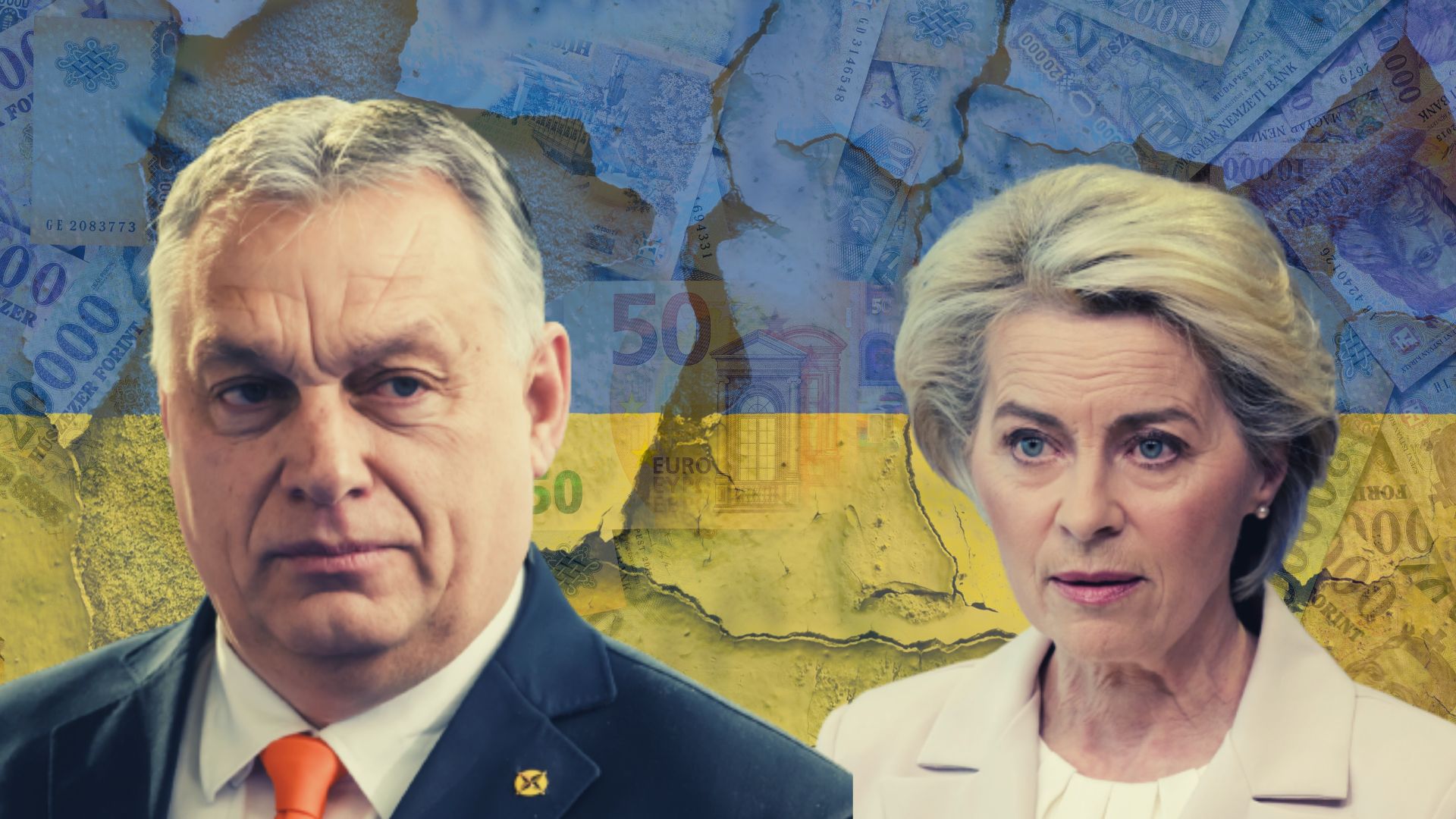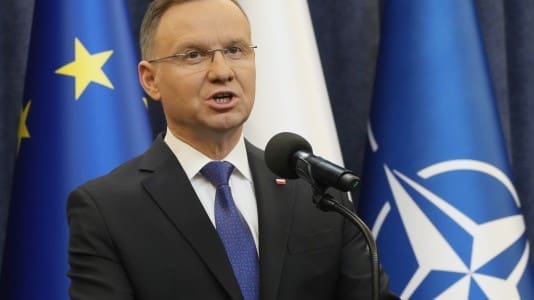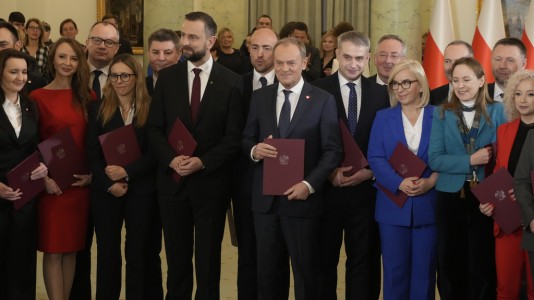Some critics, including conservatives, are contending that Hungary blinked in the face of EU pressure, which resulted in the country dropping its veto against €50 billion in aid to Ukraine during last Thursday’s EU summit. For example, popular Alternative for Germany (AfD) MEP Christine Anderson, who has built a notable social media presence based on her powerful English-language speeches in the European Parliament, says Hungary has “given in” to pressure from the EU.
??|Hungary's Prime Minister #Orban has given in to the massive intimidation attempts by the @EU_Commission and lifts the blockade against aid for #Ukraine. Another 50 billion euros are now heading to #Kyiv. Time for #peace negotiations! #ID https://t.co/QfvRL1ZbWe
— Christine Anderson (@AndersonAfDMdEP) February 2, 2024Hungary initially said it was blocking the €50 billion out of principle and that it was not connected to the frozen EU billions being withheld from Hungary. However, these funds undoubtedly played some role in the issue, as Hungary has a clear national interest in obtaining that money for its citizens. In fact, the Orbán government would be remiss not to tie the issues together, as Ukraine is not an EU member state and, even before the war, it was known for rampant corruption. Now, billions in Western taxpayer money remain unaccounted for
Hungary, as one of the lone voices supporting an alternative pro-peace stance on the issue of Ukraine, is often held up by conservatives, and sharply criticized if it fails to meet the lofty expectations ascribed to it. However, Orbán has been open that Hungary is a small, landlocked country, operating amidst greater powers. There are limits to what it can achieve in the face of overwhelming opposition from the rest of the 26 EU countries, especially with the major powers of France, Germany, and Italy aligned against it on the issue of Ukraine.
Will Hungary get its EU money?
Currently, there is no outward public announcement that Hungary will receive any EU money in return for dropping its veto. In December of last year, just two days before the EU summit, it was announced that Hungary had been given access to €10 billion in frozen EU funds out of the €30 billion it was owed. At the summit, Hungary allowed EU membership talks to proceed with Ukraine.
This time, the issue of the remaining frozen EU funds is far murkier.
Both Hungarian Prime Minister Viktor Orbán and Foreign Minister Péter Szijjártó have hinted that Hungary’s EU money will not be sent to Ukraine, which raises at least the possibility that EU leaders and the Hungarian government may have some unspoken guarantees behind the scenes.
Hungarian officials contend that they received what they want from negotiations, but also outright said there was a high degree of blackmail tactics being deployed against the country.
“And the fact is that, as in all such debates, there were and are instruments in the hands of the Brussels people. And they are in our hands too, of course. It is true that there are 26 of them, and the extent of their instruments varies, but it is clear that if there is no agreement, they can of course do us damage, but the damage we do to them will not be pleasant either,” said Orbán in a radio interview after the summit.
In fact, this was not mere paranoia on Orbán’s part. The explosive leak to the Financial Times regarding the EU’s plans to “sabotage” Hungary’s economy if it pursued its veto stance against Ukraine aid, including targeting Hungary’s debt, its currency, and vital sectors of its economy, was an unbelievable threat leveled at a fellow member state. If there was a fair media playing field, the story would have gained a lot more traction than it did, but the situation is what it is.
Orbán essentially acknowledges that the threat to Hungary was enormous, including losing its veto power entirely, but he also implies that Hungary’s EU money will now not be going to Ukraine either.
So, it is better to agree than to fight. And that’s why we look for those points where everybody can agree. I went to the wall. So, what I can say is that if this agreement had not been reached and Hungary continued to use its veto, then we would have a situation where they would have reached an agreement with just 26 nations, and they would have sent the money to Ukraine. I cannot prevent that, and they would even take the money that the Hungarians are owed and send that away too. Why would that have been good?
In an appearance on Belgian station VRT TV, Hungarian Foreign Minister Péter Szijjártó said that Hungary has achieved both its critical goals at last week’s EU summit, including “guarantees” that Hungary would receive money.
“For us, two things were very important: firstly, to ensure that our money from the European Union is not sent to Ukraine […] Secondly, that every year there is a kind of review mechanism to see how the money is spent by the Ukrainian side, so now the committee will prepare a report every year, and on the basis of the report the Council will give guidelines,” Szijjártó said.
The minister then outright said there was a justified fear that the money duly owed to Hungary would be sent abroad, but an agreement was reached.
“If you as a member state do not receive the funds which are due to you, then you have a suspicion that if an external partner is supposed to be financially supported, the money that you should receive but do not get maybe goes to the third partner. But we have received guarantees that this will not happen,” said the minister.
Time will only tell whether this money will actually start flowing to Hungary. However, if even a portion of the €20 billion owed to Hungary is going to be released to the country, there will be a fight in Brussels, as the left, especially in the European Parliament, already flew into a rage when the €10 billion was unfrozen.
European Commission President Ursula von der Leyen was also quite clear that the remaining €20 billion will not flow to Hungary until the Orbán government gives up its position on migration and LGBT rights.
If Hungary managed to secure even some of its EU funding by dropping its veto, it would be a victory, and fellow conservatives in Europe, many of whom still remain far from the halls of power in their own country, can criticize Hungary’s stance all they want, but the Orbán administration has its own national interests to pursue.
Hungary has arguably done all it can to pursue a pro-peace settlement in Ukraine, and it has put its neck on the line continuously to pursue this goal. Ultimately, if other European politicians want peace between Russia and Ukraine, they are going to have to continue to win elections and support Hungary’s efforts at the European level from a position of power. Hungary cannot go it alone.






